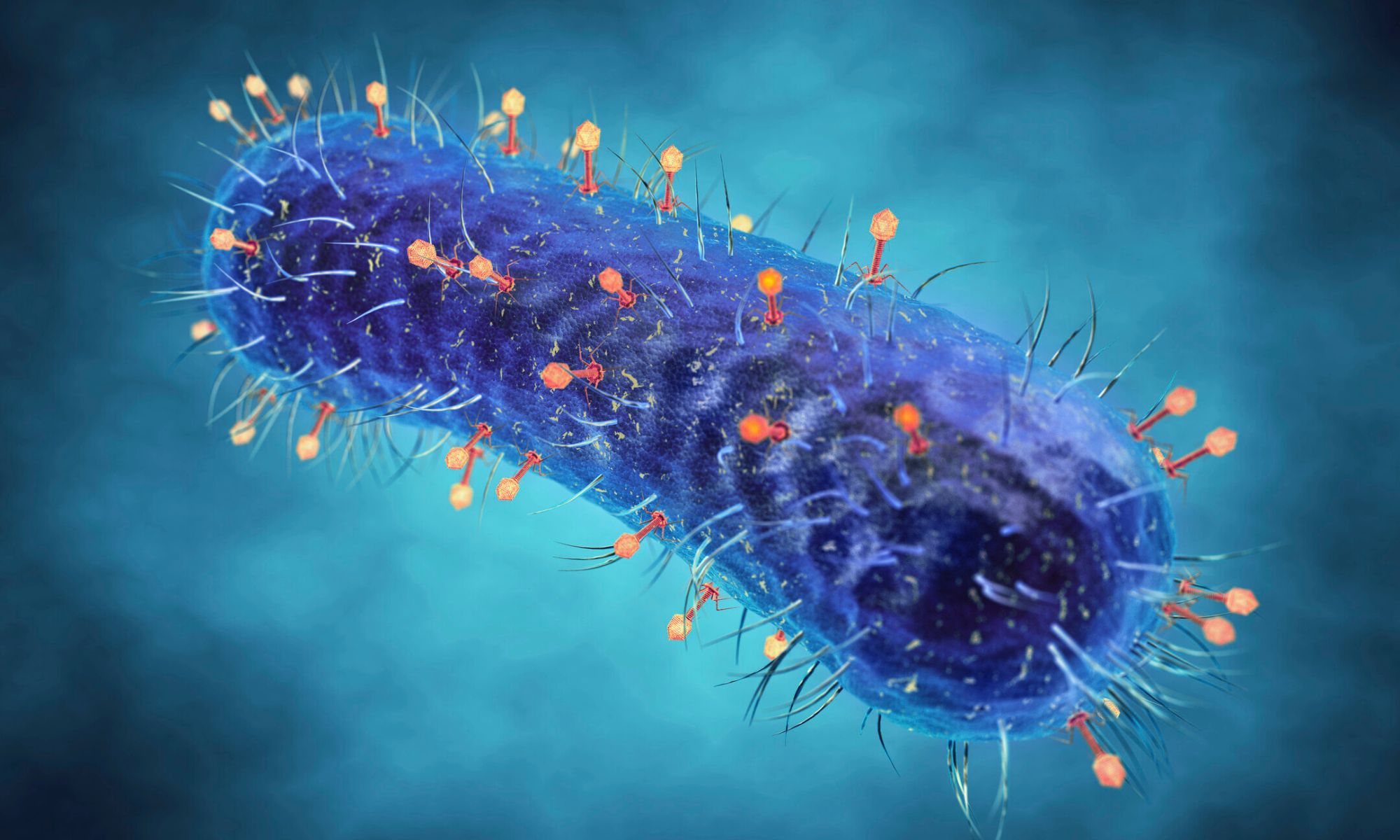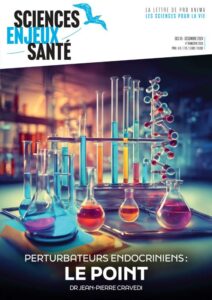
The FDA to curb controversial animal testing, UK recommendation to adopt NAMs in chemical regulation, AI and genomic for phage therapy and more
News on non-animal methods
NOVEMBER 25 - 29, 2024NEWS, REPORTS & POSITION STATEMENTS
1. The FDA wants to curb controversial animal testing — Here’s how they plan to do it
According to FDA administrator Chad P. Nelson and colleagues in a new paper, the agency is working to develop new approach methodologies (NAMs) to minimize animal testing. Remaining committed to increasing safety, mitigating risks, and maximizing efficacy, the form of these replacements varies from new physical tests to computer models, although the FDA is focused on developing dynamic qualification programs for evaluating each of these diversified approaches.
Through activities like the ISTAND drug development program, collaborations with industry, workshops, and original research, the agency is developing new methods of leading the way toward reducing reliance on live animal subjects. The NAMs will help create not just new, but better safety standards.
2. The usefulness of in vitro mechanistic information in regulatory dossiers : the case of the CAR mode of action in carcinogenicity assessment
Data on Mode of Action (MoA) of rodent tumour formation have become an integral part of the information submitted in regulatory dossiers for some chemical substances registration or re-registration. This instigates companies to proactively conduct extensive studies on vertebrates, which contradicts the principles of the 3Rs (Replacement, Reduction, and Refinement).
To better understand the role that in vitro mechanistic studies already can play in decision-making the Joint Research Centre (JRC) conducted an analysis focusing on the constitutive androstane receptor (CAR) MoA. The analysis showed that in vitro mechanistic studies play a relevant role in the weight of evidence evaluation to elucidate the human relevance of the CAR MoA in regulatory decision-making. Consequently, this information can give important hints on recommendations for in vitro mechanistic studies harmonisation in this specific regulatory field.
3. The urgent need to replace animal testing in medical research
The Pro Anima scientific committee just published a contribution in the mainstream French journal Le Monde, about the need to replace animal testing in medical health research. The debate on animal research has traditionally been presented as an ethical issue, but as the Pro Anima Scientific Committee points out it is also and above all a scientific question of public health.
Better protection of populations and environments, through the implementation of a more effective and reliable assessment system based on advances in knowledge and technology, is crucial to meeting the complex challenges of public health, innovation, competitiveness and sovereignty. The scientific community and its leaders have a responsibility towards civil society to support this transition effectively.
Read more (FR)
4. NIH report on the Community Engagement Workshop (2024)
The Community Engagement Workshop was a 1.5‑day event in which the NIH Common Fund invited the community (e.g., data scientists, educators, community engagement specialists, advocates) to provide feedback on ways to improve the utility and interoperability of NIH Common Fund data resources, explore effective outreach approaches and develop strategies to help these communities utilize Common Fund resources more effectively. The event included a series of panel sessions and interactive hybrid breakout sessions, where virtual attendees were encouraged to participate in the discussion.
Several themes occurred frequently throughout the workshop which highlighted their importance. Accountabilitythroughout the research and data collection process was noted across multiple sessions. The need for transparency and tailored communications were also encouraged. Finally, attendees emphasized that to successfully achieve its goals the NIH Common Fund should focus on the development of lasting bidirectional relationships with the community. Community partners, or community advisory boards, should have a larger role in directing research across the entire lifecycle.
Read more and download the report
5. Recommendations for the adoption of NAMs in UK chemical regulation
Hazardous Substances Advisory Committee (HSAC) defines New Approach Methodologies (NAMs) as every method that can enhance the assessment and regulation of hazardous chemicals by improving the relevance, performance and reliability of toxicological testing, based upon an understanding of the modes of action of substances.
To take advantage of existing scientific capabilities, foster technological improvements and leverage existing know-how regarding the mechanistic evaluation of chemicals, HSAC proposes that Defra (Department for Environment, Food & Rural Affairs) set criteria for NAMs to be considered within a progressive regulatory framework, and proposes the establishment of UK centres of excellence and a UK national reference laboratory for the development and validation of NAMs to ensure the uptake of technological improvements within the government and private sectors.
INTERVIEWS, NOMINATIONS & AWARDS
6. France 2030 : Cell-ID program to understand how cells choose their destiny and sometimes go off the rails
Led by CNRS and Inserm, and including numerous partners (Institut Curie, Institut Pasteur, CEA, universities, hospitals and industry), Cell-ID officially kicks off on November 22, 2024, with funding of €50 million over a seven-year period, financed by the France 2030 investment plan.
By focusing on neural development and pediatric brain cancers, Cell-ID aims to enable early diagnosis of these pathologies. The program of pluridisciplinary nature will make use of imaging methods, functional genomics and the development of complex tissue models. Finally, a special effort will be made in data modeling : data will be shared thanks to a dedicated infrastructure set up as part of this program.
Read more (FR)
TOOLS, PLATFORMS, CALLS
7. QMUL Organ-on-a-chip Centre for doctoral training programme projects
The Centre for Doctoral Training in Next Generation Organ on a Chip Technology (COaCT) is a 4‑year PhD cohort training programme, co-delivered with key stakeholders that addresses the major user need for skilled graduates to transform delivery of new medicines using organ-on-a-chip technologies. The QMUL CDT offers an opportunity to do a PhD in a highly interdisciplinary environment comprising world-leading researchers and industrial stakeholder partners. Students will, in addition to the research and technical content of their PhD project, learn about concepts of responsible research, innovation and design, and address the regulatory landscape governing safe, ethical use of organ-chips in human therapeutic discovery.
8. The Centre for Human Specific Research is awarding pilot and transition grants
The Centre for Human Specific Research is awarding pilot and transition grants, from £5,000 to £25,000, to accelerate the development and wider adoption of human-specific research. The Pilot grants aim to support scientists in exploring innovative, human-specific research methods, facilitating pilot data collection to support future funding applications. Transition grants aim to support scientists in transitioning from animal research and the use of animal-derived biomaterials to animal-free, human-specific methods.
Preferred research focus areas are cancer, cardiovascular disease, neurodegenerative disease,and toxicology. However, projects outside of these areas will also be considered. Relevant human-specific approaches may include in vitro assays such as 2D cell culture, organ-on-chip models, organoids, or spheroids ; ex vivo tissue models ; omics technologies ; or in silico analysis.This call is open to receiving applications with matched funding and the deadline to apply is January 31st 2025.
9. SRI2025 invites session proposals to the 2025 Congress program
Since 2021, Sustainability Research + Innovation (SRI) has united global leaders in research, government, civil society, and business to meaningfully advance sustainability. The SRI Congress offers an exceptionally inclusive and inspiring global platform for co-creating state-of-the-art solutions and innovations ; building a coalition of the willing to achieve a sustainability transformation.
SRI2025 invites you to submit session proposals around the issues and challenges facing us, covering a wide range of topics and engaging participants to collectively achieve a goal. The SRI Congress team will work with session organizers to design sessions that are interactive, informative and inclusive, making sure to provide all participants a range of ways to engage. This call for contributions is open to any group of people working to develop and implement the solutions to create a more sustainable, equitable, inclusive, and just future. Submissions are accepted by 7 December 2024 (17:00 ET) and will be reviewed by the SRI2025 Program Team.
INDUSTRY, BIOTECH & PARTNERSHIPS
10. AI-driven drug shows promising phase IIa results in treating fatal lung disease
Insilico Medicine, a biotechnology company that developed foundational artificial intelligence (AI) in drug discovery platform, recently reported promising results from a Phase IIa clinical trial of its experimental drug ISM001-055, developed specifically to treat idiopathic pulmonary fibrosis (IPF). The trial results showed that the drug, designed entirely using generative AI, could improve lung function in patients over just 12 weeks, offering a potential new therapeutic option for those battling this life-threatening disease.
As Insilico Medicine prepares to advance ISM001-055 into larger trials, the medical community remains cautiously optimistic, but hopeful, this AI-developed drug might finally offer relief to millions suffering from IPF worldwide.
11. Medac and chiron develop organ-on chip tech for animal free drug testing
Although animal testing is an obligatory part of pharmaceutical development and commercialisation, the ethics of the process has encouraged industry members to look for alternative solutions. The co-operation between medac and chiron presents a meaningful step towards a forward-looking development of alternative methods for animal free drug development.
Medac’s Head of Product Development, Florian Ende, commented : “With this cooperation medac makes an important contribution to the development and establishment of new approach methods (NAMs), which can be used for analysis of drug efficacy using human cells instead of performing animal studies.”
SCIENTIFIC DISCOVERIES & PROTOCOLS
12. Prediction of strain level phage – host interactions across the Escherichia genus using AI and genomic information
With the rise of antibiotics in the 1930s, phage therapy (i.e. the use of viruses called bacteriophages to fight bacterial infections) was abandoned. Today, the unfortunate increase of antibiotic resistance makes the treatment of bacterial infections difficult. Phage therapy is once again attracting the interest of doctors and researchers, despite the complexity of its implementation, due to the great diversity and specificity of bacteriophages.
Scientists from the Institut Pasteur, Inserm, AP-HP and Université Paris Cité have developed a new tool to help select the best possible cocktail of bacteriophages for a given patient, simply and effectively. To achieve this, they have developed and trained an artificial intelligence-based model capable of selecting tailor-made bacteriophages based solely on the genome of the targeted bacteria. The results of this work were published on October 31, 2024 in the journal Nature Microbiology, and pave the way for personalized phagotherapies to combat antibiotic-resistant bacterial infections.
Read more (FR)
Read the article in Nature Microbiology
UPCOMING WEBINARS, WORKSHOPS, SYMPOSIA
4th Asian Congress for Alternatives to Animal Experiments (4ACAAE)
The 4th Asian Congress for Alternatives to Animal Experiments (4ACAAE) and the 7th Annual Meeting of the Society for Alternatives to Animal Experiments – India (SAAE‑I) will be hosted in the historical city and capital of India – New Delhi, from December 12 to 14, 2024, after a successful 3rd ACAAE held in Jeju, South Korea, in 2022. The theme of the Congress is “Non-animal approaches : concept, validation and regulatory acceptance”.
The aim is to bring to fore the need for creation of a regulatory framework for real-time adoption of alternatives/NAMs in drug and product development and toxicology.


